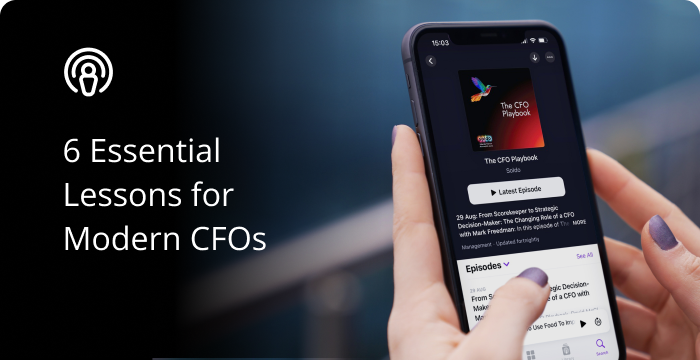Just when it looked like things were getting back to normal post covid, the future economic outlook took a downward turn.
This uncertainty has been caused by several tailwinds locally and internationally. There are complications related to importing and exporting goods post-Brexit in the UK, and overseas the Ukraine war has given stock markets the jitters and resulted in the prices of energy, components and raw goods spiking.
This has led to inflation rising to 9%, the highest level for forty years. Unfortunately, the economy is likely to worsen with further inflation rises and a predicted oncoming UK recession.
It’s a difficult time for CFOs as their company’s costs are likely to increase, and the fundraising market is becoming more challenging.
This requires a slightly different approach to normal, with finance leaders needing to perform the role of “wartime CFOs,” by cutting costs, managing spend tightly and automating the finance function to be more productive and agile.
Cut costs
Sometimes the obvious needs stating – in the first instance finance leaders should cut costs.
Their companies will likely have several software subscriptions that are no longer being used. This could be due to them no longer fulfilling requirements, fewer licenses being required, or staff members simply having forgotten that they took subscriptions out in the first place.
Marketing spend will be put under more pressure to demonstrate a return on investment, and initiatives related to brand should be reconsidered.
If companies need to continue hiring, external agencies should only be used if roles haven’t been filled after three months.
These actions won’t make CFOs popular, so they will need to communicate to stakeholders that these changes are necessary for the long term success of their companies.
Manage spend tightly
In the current uncertain economic environment, CFOs need to manage company spend more tightly to minimise wastage and maximise impact.
Using a spend management platform like Soldo to manage company expenditure will enable employees to procure products and services to perform their roles successfully, while also having controls in place to ensure cash is not overspent or misappropriated.
These solutions are far superior to corporate cards that create pain points due to team members needing to access cards from budget owners and senior employees. This makes it hard for specific individuals to be accountable due to their shared use, and can result in employees spending unnecessarily as transactions can’t be traced back to them.
The Plymouth College of Art successfully moved away from using over 70 corporate cards to Soldo. This resulted in the finance team managing around 100 individual prepaid cards. This required less effort from the finance team, due to Soldo’s self-service features and streamlined system.
Mark Taylor, Plymouth College of Art’s Director of Finance says:
“We’ve had very good feedback from the users, and that’s really, really important. In fact, it’s probably the most significant thing – because at the end of the day, if you want something to be adopted and used well, it needs to be used and trusted. “
Additionally, the growing trend of employees working from home creates further security concerns around the sharing of corporate cards.
Instead, spend management platforms enable employees to transact easily by using their own virtual cards to pay online, or in-store via Google Pay or Apple Pay.
These solutions allow finance leaders to create rules related to business areas where cash can be spent, alongside limits.
Unlike corporate cards, CFOs have real-time visibility on spend across the business, with transactions categorised instantly. This creates opportunities for agile decision-making related to which areas can have spend cut, alongside highlighting activities to double down on based on their impact.
The chart of accounts on spend management tools can also be set up to reflect the VAT treatment of different categories automatically. This means that companies stand the best chance of maximising quarterly VAT repayments.
Enhance automation
Enhancing automation across finance and the wider company can help keep costs down by employees being more productive, and minimising the need to make additional hires as firms grow.
It’s all about being more efficient with the tools you use, with productivity gains benefiting employees too. Paying staff to enter data is inefficient and unmotivating, and they should be freed up to spend their time on more value-adding work.
Finance tools that integrate directly with accounting software will also reduce data duplication and human errors.
Spend management tools connect directly to cloud accounting software, duplicate their chart of accounts, and import spend transactions that can be reconciled similarly to bank feeds.
Frequent cash flow forecasts
Running out of cash is one of the most common reasons for business failure. To put it simply, businesses that can’t get their sales invoice paid on time will have a strain put on their cash and struggle to pay their suppliers.
In the current uncertain environment, CFOs need to monitor their cash regularly to meet commitments and ensure there is sufficient runway to negotiate future funding rounds favourably. Potential investors who believe there is the risk of your business running out of cash in six months may be put off investing or choose to do so at a lower valuation.
If automation across core accounting software and direct add-ons has been leveraged, it’s now easier than ever to generate accurate cash flow forecasts on the fly, within cloud tools rather than manually on spreadsheets.
At a minimum, cash flows should be created monthly and weekly if businesses are tight on cash.
You can generate more accurate forecasts by using cash flow tools that use AI and historic payment data, such as Fluidly, to predict when invoices will be settled. For example, customers who commonly pay two weeks after due dates are likely to continue paying late in the future.
On the CFO Playbook podcast Navepreet Randhawa, CFO at Minna, a subscription management software company explained how he uses cash flow forecasting tools to plan for a range of different scenarios:
“You have to analyse what [happens] if this contract doesn’t work out. What if another contact doesn’t come in or they pay 50% of the value?”
Managing spend and automating the finance function enables sustainable growth
Changing your behaviour in line with these suggestions isn’t about holding back growth, it’s about finetuning your company’s performance to maximise impact and increase the value of the business. And when the good times return you’ll be in an even stronger position to accelerate your trajectory.










